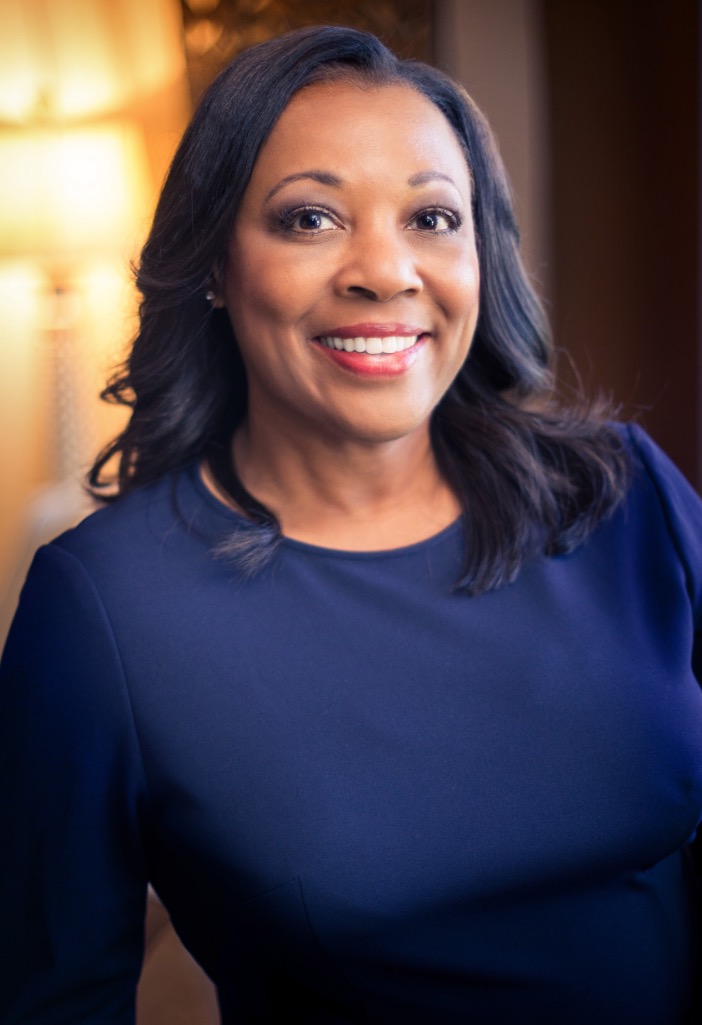U.S. District Judge Vanessa Gilmore read in the newspaper that one of her colleagues on the bench in the Southern District of Texas had sentenced a defendant in the Enron scandal to only two and a half years in prison even though prosecutors asked for a 30-year sentence.
The Houston judge was quoted in the newspaper as saying that white collar criminals can’t tolerate lengthy prison sentences.

“He believed some people were more embarrassed at the stigma of going to prison than others,” Judge Gilmore told the Association of Corporate Counsel’s Houston Chapter in a CLE webcast last week called “Implicit Bias in the Courts.”
The judge also said he was moved because the defendant had been a Boy Scout and the judge had been a Boy Scout leader himself and the father of two Boy Scouts.
“I decided I would give my colleague the benefit of the doubt and would discuss this matter with him personally,” Judge Gilmore said.
Judge Gilmore asked the other judge if the newspaper had misquoted him.
“No, no, no,” the judge responded. “What you don’t understand, Vanessa, is that those other people we sentence, they don’t care about going to prison. Everybody in their community goes to prison. So, it is no big deal. This man lives in a community where people really don’t go to prison.”
Judge Gilmore was stunned.
“I thought, ‘That’s worse than what they said in the newspaper.’ It was hard for me to believe that this was part of his thought process,” she said.
An appointee of President Bill Clinton and 26-year veteran of the federal bench in Houston, Judge Gilmore told the corporate in-house counsel that everyone has biases, including judges and lawyers.
The key, she said, is recognizing and dealing with it. She also said lawyers need to stand up against bias when they see it in judges or other lawyers.
“To the extent that you feel you are dealing with a judge who is guilty of implicit bias, I don’t think you can let it go. I think you have to push back on it,” Judge Gilmore said. “When no one calls BS on our BS, if we are not shooting straight, if we are bringing our own biases into the situation, sometimes you just have to have enough nerve to say, ‘Your honor, I don’t think that is completely fair in this circumstance.’
“Don’t just shrug and say, ‘There’s nothing I can do about it, that’s the judge,’” she said.
Judge Gilmore pointed to a 2010 report by the U.S. Sentencing Commission that found that African American men on average received sentences that were 23% longer than white men. Hispanic men’s sentences were 7% longer than white men.
“The assumption is because of our background, we might have a tendency to prejudge certain issues,” she said. “Even though we push back against that characterization, the reality is that all of us have a tendency to prejudge things based on our own background and our own life experiences.”
“Implicit bias is sometimes also known as unconscious bias,” she said. “It is defined as a relatively unconscious action of prejudice judgment, including implicit attitudes toward members of social stigmatized groups, such as African Americans.”
A more recent U.S. Sentencing Commission study which used a regression model that controlled for relevant factors such as age and education of the defendant, found that sentences for African American men were on average 19.1% higher than white men. Also, judges were much less likely to depart downward from the sentencing guidelines for African Americans when they had the option.
Judge Gilmore noted that judges in other parts of the country show an educational video to prospective jurors regarding implicit bias. Other judges give jurors a charge at the start of trials telling them to guard against bias.
A 1981 graduate of the University of Houston Law Center, Judge Gilmore said the judges in the Southern District of Texas decided in August to expand the jury pool by also drawing prospective jurors from driver’s licenses as well as voter registration rolls. The move, she said, should help diversify the jury pool.
The Northern District of Texas and the Eastern District of Texas amended their jury plans a decade ago to expand and diversify the jury pool.
Judge Gilmore said she decided to test her own unconscious bias by taking a Harvard University implicit bias test. The results: She showed moderate automatic association with harmless objects with white Americans and weapons with black Americans.
“Any of you interested in looking at this issue in terms of yourself, look at this Harvard test,” Judge Gilmore told ACC Houston members. “And look at what your own implicit biases might be. Assume that you are bringing them with you and then work hard to address them yourself.”
“I think that our implicit biases can affect every decision that we make as federal judges,” she said. “As judges, we have a responsibility to reach beyond our comfort zone and be part of the solution.”
“As officers of the court that you are and as members of the bar, I think you have that obligation as well,” Judge Gilmore said. “If we all work together with the idea that we are going to do as much as we can to make the courts as fair as we can in the context of what we can do personally, in terms of educating jurors, judges and ourselves, then we will have want we want from the courts – a place where justice is fairly and impartially and without bias meted out.”
Lawyers and judges interested in watching the Association of Corporate Counsel Houston program can click here.
